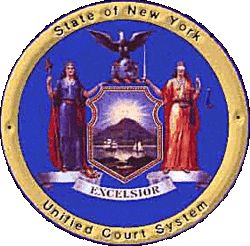February
2013
NY High Court Rules Trial Must Resolve Asbestos Reinsurance Case
On February 7, 2013, New York State’s highest court held that a trial must determine whether United States Fidelity & Guaranty Company (USF&G) deliberately structured a $975 million asbestos settlement to force its reinsurers to pay more than their fair share. United States Fidelity & Guaranty Company vs. American Re-Insurance Co, New York Court of Appeals, No. 1 Decided February 7, 2013.
The case stems from 1948 when USF&G became one of the liability insurers for Western Asbestos Co., a distributor for asbestos products. Western Asbestos Co. was taken over by Western MacArthur Corporation (“Western MacArthur”) and it was eventually decided that MacArthur was liable for personal injury claims arising from products the company had sold.
Western MacArthur sued its insurers in 1993 seeking indemnification. After a lengthy coverage dispute, USF&G settled the coverage case, paying a total of $975 million to resolve the asbestos claims, plus $12.3 million in attorney’s fees. Thereafter USF&G sought indemnification from its reinsurers, the cause of action leading to the current dispute.
In hearing the dispute between USF&G and the reinsurers, the lower courts granted summary judgment for USF&G and ordered an award in favor of USF&G for $420,425,536.15. On appeal to the New York High Court, the reinsurers’ challenged USF&G’s allocation of the settlement payment. Specifically, the reinsurers alleged that USF&G minimized the burden on itself and maximized the cost to the reinsurers.
The New York High Court addressed several complex issues relating to USF&G’s reinsurance presentation, including allocation, bad faith, treaty modification, asbestos bankruptcy, and collateral estoppel. The Court ultimately modified the lower courts order for summary judgment, holding, among other things, that a trial is needed to determine whether USF&G had improperly designed the Western MacArthur settlement to maximize the amount of money it could recoup from reinsurers. Specifically, the Court concluded that summary judgment was inappropriate because there were disputed issues of fact as to whether USF&G, in allocating the settlement amount, reasonably did not attribute anything to the “bad faith” claims against it and whether certain claims were given unreasonable values for settlement purposes. The Court also rejected the reinsurers’ argument that they had no obligation to cover any of USF&G’s expenses.
Download United States Fiderlity & Guaranty Co. v. American Re-Insurance Co.



